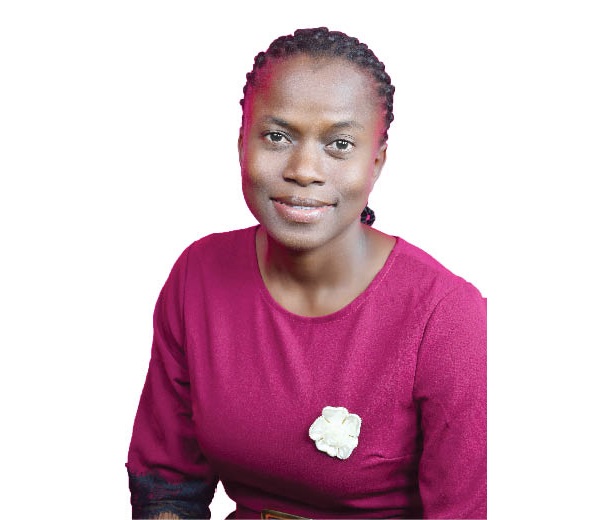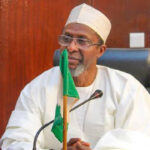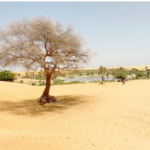Ibukunoluwa Adetutu Olajide is a lecturer in the Department of Electrical and Electronics Engineering, Federal University of Technology, Akure and presently on her doctorate degree programme in the same school.
She is one of the two Nigerians who were awarded the L’Oreal-UNESCO for Women in Science (FWIS) Prize among the 20 Young Talents in sub-Saharan Africa.
In this interview, she spoke on her research and what she intends to achieve.
What do you hope to achieve with your research?
My research areas are free space optical communication, signal processing and communication.
The increase in internet penetration, tele-density for voice communication and demand for data communications have resulted in increased demand for bandwidth.
In order to meet this need, mobile operators have to optimise network systems to provide calls, texts and data services, which often bring the network to performances below the optimal.
The Global Communication Community has come up with alternate technology to combat, possibly reduce, data losses and spectrum congestion.
Of importance is the use of light for data transmission.
Free space optical communication is a technology in which information in the form of voice, video or text is transmitted using optical radiation in free space; that is, the atmosphere.
So the knowledge obtained from the research can be correctly applied by manufacturers of free space optical communication equipment for the deployment of relative designs for area networks in Nigeria; and at large, the sub-Saharan African countries.
The result obtained from incorporating machine learning and space diversity technique is hoped to provide optimal transmitted power utilisation.
How do you feel being named among the 20 awardees for the UNESCO/L’Oreal Foundation grant?
I am grateful to God; it was not easy to come by. There were many applications from different countries in sub-Saharan Africa.
How the jury narrowed down on two candidates from Nigeria still amazes me.
What does the award mean to you?
It is a wonderful thing and I count it as a great privilege. I appreciate UNESCO-L’Oreal for the grant.
How would you describe the involvement of women in science in Nigeria?
The involvement of women in science in Nigeria has expanded and grown over the years.
Women are actively involved and this is worthy of note.
Do you think Nigerian scholars are doing enough in terms of research to address challenges in the country?
They are doing their best in carrying out researches within the physical, structural and economic makeup of Nigeria.
Research is done primarily to proffer solutions to identified problems.
Frankly, Nigeria presently has a hostile environment in carrying out adequate and resourceful research.
For a researcher to do enough to address a country’s challenges, the environment must be enabling.
Many scholars try to fund their researches as there is little or no fund available.
Presently, in my field, there are no adequate laboratories to carry out detailed experimental studies. Grant offers are limited and very competitive.
It is the survival of the fittest. In recent times, the Tertiary Education Trust Fund (Tetfund) brought out funding privileges, but this is still too far from providing the adequate platform needed for Nigerian scholars to address the country’s challenges.
How would you assess the relationship between the academia and industries, in terms of implementing research findings?
The relationship between the academia and industries in Nigeria in terms of implementing research findings is poor.
Many researches end up on the shelves; only a few make it out. Many of our ivory towers have good researches but no industrial development.
There is no synergy between the academia and industries in Nigeria. Where are the industries that will fund a research?
Most industries are struggling to survive in Nigeria. Most surviving ones are not driven by solving problems but manufacturing what would keep them to stay alive.
Nigerian scholars are endowed but there’s no link to the industry.
I am in the system, so I know this truth.
As a woman in science, a field dominated by men, what are the challenges women face?
The major challenge of women in science is the woman.
If a woman lacks mental strength to compete with men in science; this will pose a serious challenge.
The saying goes that ‘when there is a will, there is a way.’
Science has a large sphere of disciplines; researchers do not have to be bogus but simply solve a particular problem at a time.
Once I am able to identify a problem and solve it, I would have added to knowledge in my own little way.
I can recollect that when I started my career in engineering, I had the fear of failing and felt I had inadequate technical/theoretical exposure.
I was always afraid to try because I didn’t like to fail. As I got along in this path, I noted that failure was an excellent road to success and discoveries.
I gradually resolved to always keep trying. Failure builds resilience and strength in one’s mind.
I forgot about being in a field dominated by men. I had to carve out my own space.
There is room for everyone – male and female – I just had to occupy mine.
Another challenge is the misconception of marriage and childbearing as a hindrance to the advancement of women in science.
I am not of the opinion that marriage or childbearing poses a challenge to women in the scientific field.
It is only a matter of harnessing time and privileges/opportunities as they come, but not at the expense of the family.
No matter how a woman does research and makes discoveries, the place of utmost strength and rejuvenation is the family.
Keep your family and you will keep moving in your research.

 Join Daily Trust WhatsApp Community For Quick Access To News and Happenings Around You.
Join Daily Trust WhatsApp Community For Quick Access To News and Happenings Around You.


